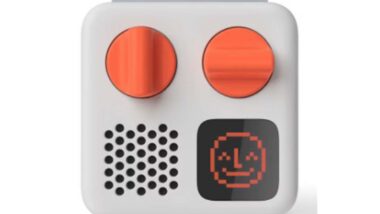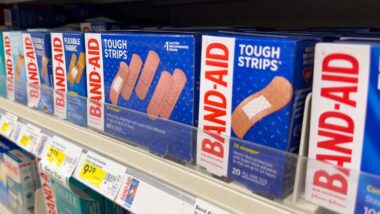Top Class Actions’s website and social media posts use affiliate links. If you make a purchase using such links, we may receive a commission, but it will not result in any additional charges to you. Please review our Affiliate Link Disclosure for more information.

Plaintiff Walter S. filed the Levaquin antibiotic lawsuit against Bayer Healthcare Pharmaceuticals, Johnson & Johnson, Janssen Pharmaceuticals, and their related companies, all of whom Walter alleges are involved in the manufacture, distribution and sale of Levaquin.
Walter says he began taking Levaquin in September 2006, according to his doctor’s prescription. He later developed peripheral neuropathy, which is a weakness or numbness caused by nerve damage, that he now attributes to his Levaquin treatment, the Levaquin peripheral neuropathy lawsuit claims.
Levaquin, also sold under its generic name levafloxacin, is one of a class of antibiotics known as fluoroquinolones, or simply quinolone antibiotics. Levaquin was originally approved by the FDA in December 1996. It is prescribed to treat bacterial infections of the skin, respiratory, and genitourinary systems and also as a treatment for persons exposed to anthrax.
According to Walter’s Levaquin lawsuit, in 2003 Levaquin became the number one prescribed quinolone antibiotic after generic versions of competitor quinolone Cipro entered the market. And in 2006, after generic versions of Zithromax became available, Levaquin became the most frequently prescribed antibiotic in the world.
It generated $1.6 billion in revenue for Johnson & Johnson in 2007 alone, the Levaquin lawsuit says.
Quinolone Peripheral Neuropathy
Walter states in his Levaquin lawsuit that scientific literature from as far back as 1992 shows concern over a connection between quinolone antibiotics and peripheral neuropathy. Walter cites a study published in 2001 that found a frequent occurrence of peripheral neuropathy in quinolone patients and recommended further study and the possible addition of a warning about the risk to the drug’s label.
In 2002 and 2003, the FDA’s Adverse Events Reporting System received reports of quinolone patients who developed long-term peripheral neuropathy that lasted even after they disconued use of the antibiotics, the quinolone antibiotics lawsuit says.
The FDA approved a label change for Levaquin in 2004 that warned of “rare” instances of polyneuropathy associated with quinolones such as Levaquin, and that patients should discontinue Levaquin upon the appearance of neuropathy symptoms.
Walter alleges the labeling for Levaquin from September 2004 through August 2013, during the time he was taking Levaquin, misled him and his physician by stating that quinolone peripheral neuropathy was “rare” and that it could be relieved by discontinuing Levaquin. He alleges the label should have warned of the potential for symptoms to continue after someone stops taking the antibiotic.
Walter’s Levaquin lawsuit includes claims for strict liability, failure to warn, negligence, breach of warranty, fraud, negligent misrepresentation, and fraudulent concealment.
He also argues that any applicable statute of limitations should not bar his claims because of the defendant’s alleged fraudulent concealment of the risks of quinolone peripheral neuropathy. He seeks compensation for both economic and non-economic damages, including medical and other expenses, consequential damages, refund of the purchase cost of the Levaquin he paid for, and reimbursement for his attorneys’ fees and costs of litigation.
The Levaquin Quinolone Antibiotic Lawsuit is Case No. 1:15-CV-01177-KMT in the U.S. District Court for the District of Colorado.
Do YOU have a legal claim? Fill out the form on this page now for a free, immediate, and confidential case evaluation. The attorneys who work with Top Class Actions will contact you if you qualify to let you know if an individual lawsuit or class action lawsuit is best for you. [In general, antibiotic injury lawsuits are filed individually by each plaintiff and are not class actions.] Hurry — statutes of limitations may apply.
ATTORNEY ADVERTISING
Top Class Actions is a Proud Member of the American Bar Association
LEGAL INFORMATION IS NOT LEGAL ADVICE
Top Class Actions Legal Statement
©2008 – 2024 Top Class Actions® LLC
Various Trademarks held by their respective owners
This website is not intended for viewing or usage by European Union citizens.
Get Help – It’s Free
Join a Free Fluoroquinolone Antibiotic Class Action Lawsuit Investigation
If you took Cipro, Levaquin, Avelox, Noroxin or Factive and were diagnosed with an eye injury or nerve damage, you may have a legal claim. Submit your information now for a free case evaluation.
An attorney will contact you if you qualify to discuss the details of your potential case at no charge to you.
Oops! We could not locate your form.












